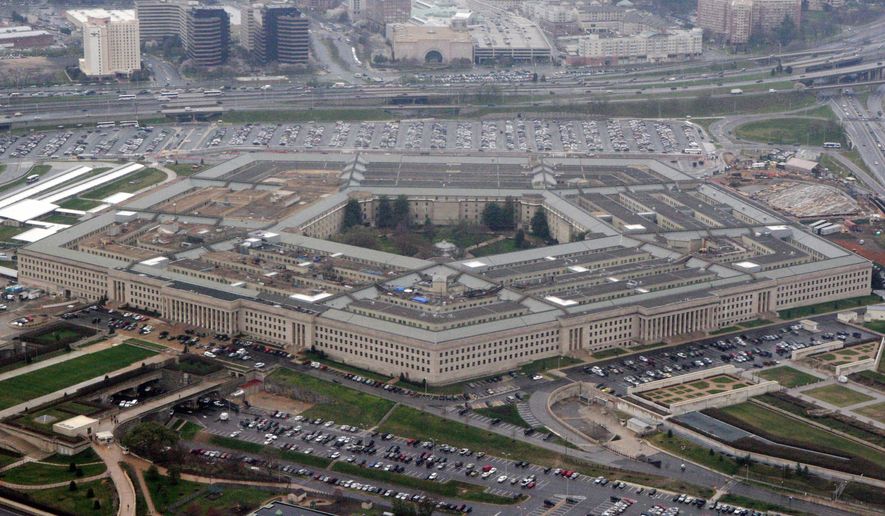ANALYSIS/OPINION:
The 2018 National Defense Authorization Act (NDAA) calls for an independent research and development center to come up with a plan to establish a U.S. Space Corps, responsible for the Pentagon’s national security space operations.
The idea is that the Defense Department could cull many duplicative positions and streamline the decision-making process by combining the existing space command-and-control structures into one department.
Unfortunately, the approach dictated by the NDAA would only worsen the current bureaucratic mire. To accelerate the decision cycle for the whole of our space portfolio, Congress would do much better to go big.
Proponents of the NDAA requirement maintain that a Space Corps would fix four main problems afflicting out space capabilities: lack of organization, funding, well-executed acquisition, and leadership development. Currently, the Pentagon is home to as many as 60 different agencies, services, and organizations that contribute to these ailments. No wonder Congress wants to streamline the apparatus.
A truly independent study that assesses the entire portfolio of space programs, assets and capabilities, might actually deliver a plan that improves the matter. But that can happen only if the researchers are free to come up with the best solutions possible. Unfortunately, the NDAA does not grant them that freedom. Instead, it limits both the scope of the study and dictates that it recommend creating a Space Corps.
To be worthwhile, any study of national security space assets must examine all 60 Pentagon entities that control or influence them, as well as those assets and programs “owned” by intelligence agencies. Such a study could produce a much larger reduction in bureaucracy and a tightening of command authorities.
That approach would, of course, face a storm of opposition. Every organization that “owns” space assets would fight the effort out of fear they would lose control of their respective portfolios. The ensuing political mire might thwart the effort.
Congress has removed that threat by narrowing the research team’s focus to only those assets and organizations within a single service. The NDAA stipulates what the team’s solution to the organizational challenge must be (the Space Corps), and even identifies the entities (and assets) that will transfer to the new department. All of them are currently held by the Air Force.
And that’s a huge problem. The Air Force owns just three of the Pentagon’s 60 space-related entities, and, the organization, funding, acquisition, and leadership development within those three are already aligned. The chances of realizing large improvements in the four problem areas by creating a Space Corps with those three alone are remote. But by culling just the Air Force assets from the herd, Congress has eased the fears and muted any potential backlash from the leadership of the 57 other organizations that would oppose a larger, more productive effort.
Telling an independent team to streamline U.S. space assets by whelping those three entities out of the Air Force may garner a legislative victory, but it’s the kind of political win we’ve grown to know and loathe. A new Space Corps would cost the American taxpayers a minimum of $180 million a year to sustain and, if the effort continues down this path, the only measurable gain will be another layer of bureaucracy within a system already swimming in it.
Congress should remedy this errant shot at reorganization by refining the guidance within the NDAA to include all 60 Defense Department organizations as well as the intelligence agencies — and remove any push toward a predetermined outcome.
Maintaining dominance in space is critical to U.S. security. Making that happen will not be easy or come without controversy. To meet the space challenges of the future with maximum effectiveness, a full and comprehensive review of our space command-and-control structure is essential. In this regard, Congress needs to go far bigger than the language of the NDAA allows.
• A 25-year veteran of the Air Force, John Venable is a senior research fellow in the Heritage Foundation’s Center for National Defense.




Please read our comment policy before commenting.